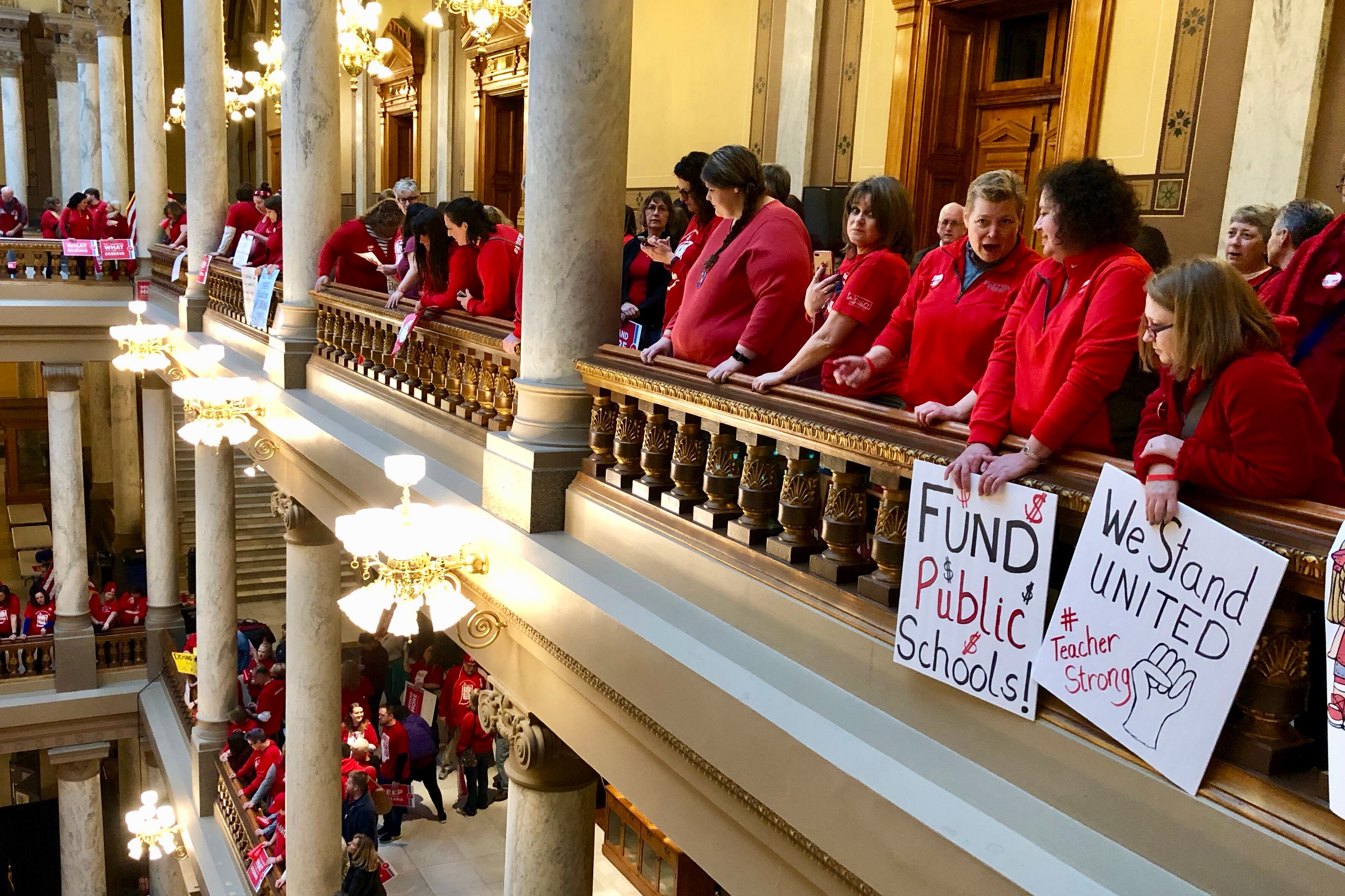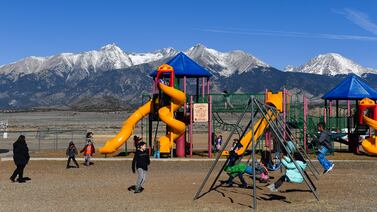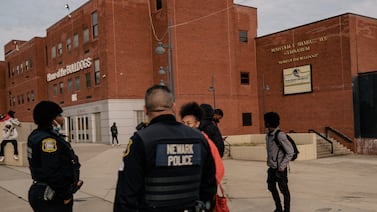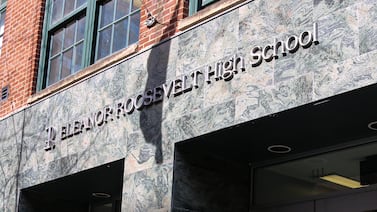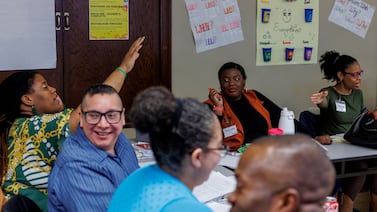As they celebrate recent legislative wins on starting salaries, Indiana teachers again are calling on the legislature to restore their ability to negotiate with school districts on working conditions like hours and class sizes.
Collective bargaining for working conditions has been a long-standing issue since the state stripped away the right in 2011. But teacher unions have struggled to gain traction in a Republican-controlled legislature.
This year, the Indiana State Teachers Association says it has voters on its side: A survey commissioned by the union last summer found that eight in 10 Hoosiers supported making working conditions part of the collective bargaining process, according to ISTA President Keith Gambill.
But legislators, and not state voters, control state law on bargaining.
In a news conference Monday ahead of the legislature’s organization day, Gambill said collective bargaining for working conditions is “vitally important” to teachers, many of whom teach in overcrowded classrooms without a prep period to plan lessons, or much say in schools’ health and safety protocols.
Restoring the right would help retain teachers amid a national shortage and in the third school year affected by the COVID-19 pandemic, Gambill said.
“Our kids have experienced significant academic impacts and everyone seems to agree we need to get them back up to grade level,” Gambill said. “This important work is hampered by overworked staff and growing class sizes.”
Teachers’ working conditions are also students’ learning conditions, said Elkhart teacher Jessica Ramirez at the conference.
“If there are too many students in a room, we can’t provide them the education they deserve,” Ramirez said. “It’s a math problem: Minutes of the day divided by students in the room.”
Speaking at a legislative preview event hosted by the Indiana Chamber of Commerce, House Speaker Todd Huston (R-Fishers) said he would not support changes to existing collective bargaining laws in the coming legislative session.
The upcoming session begins in January and runs through March. As an even-numbered year, it’s not slated to include budget discussions.
Both Huston and ISTA representatives hailed last year’s legislative victory in increasing statewide starting salaries for teachers to a minimum of $40,000.
According to data compiled by the union, just 27% of districts in the state had $40,000 minimums when collective bargaining began this fall. Some districts sailed through bargaining, promising raises to educators, while others will head to mediation after reaching impasses that have closed school doors.
As of Friday, ahead of Monday’s bargaining deadline set by state law, 212 districts had met the salary goals, or around 78% of districts in the state.
“Clearly we’re making good progress,” Gambill said.


